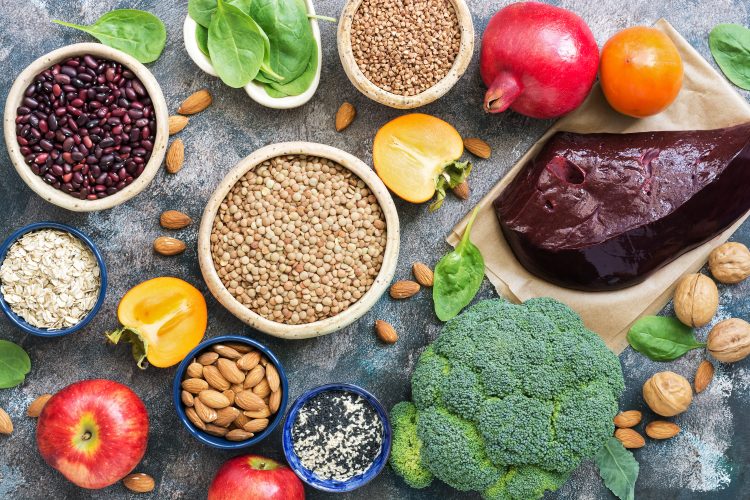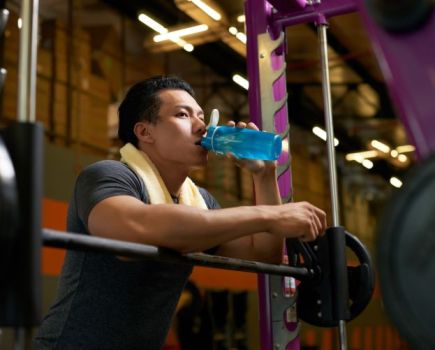An iron-rich diet promotes good oxygen circulation and muscle development. We spoke to a pro nutritionist to find out more.
Iron is a key micronutrient that’s essential to red blood cell production, providing life-giving oxygen to our organs. It’s also an important nutrient for metabolism and physical growth – key if you’re supplementing to build muscles. So, if fitness is important to you, you can’t afford to overlook the health benefits of iron.
“Iron is an essential mineral that helps build healthy red blood cells, muscles and bones,” says nutritionist Milda Zolubaite. “Iron deficiency may present itself as fatigue, weakness, thinning hair and brittle nails. It could also compromise the immune system and create higher susceptibility to infections.”
What are the health benefits of iron?
The primary role of iron is to promote oxygen circulation throughout our bodies. This not only supports our organs, but our muscles too, enhancing their ability to contract properly.
The mineral’s role in red blood cell production also means it helps protect us from anemia: when the haemoglobin concentration in our bodies’ red blood cells is lower than normal. As an added bonus, iron staves off fatigue, which is often a symptom of anemia.
Up to 25% of the iron in our bodies is stored in ferritin, which is a protein found in our cells. In men, ferritin can store iron for up to three years, yet in women it lasts for only one year. That’s why women are more susceptible to anemia than men.
So, should you be taking iron supplements?
Iron is the most common nutrient deficiency in the world today, so low iron levels are fairly common.
A healthy, balanced diet is your best bet, although supplements can also help. That said, if you suffer from the symptoms of low iron levels (such as tiredness, headaches, heart palpitations, shortness of breath, pale skin or temperature fluctuations) it’s best to get your iron levels tested before taking supplements.
Generally, those prone to low iron levels include vegetarians and vegans, frequent blood donors, heavy drinkers and those suffering from celiac disease, ulcerative colitis and Crohn’s disease.
People who undertake regular, intense exercise are also susceptible to low iron levels. So if you’re a regular weight lifter, taking the best iron supplements could be worth considering. But always check with a health professional and get your iron levels tested.
Taking iron supplements unnecessarily could harm your health, as high doses of iron can cause digestive issues and reduce the absorption of other nutrients in your gut.
How much iron do you need?
“The approximate amount of iron an adult man needs is 8.7mg,” says Zolubaite. “However, it might be much higher depending on individual needs. Vegetarians and vegans, as well as athletes, may be at higher risk of deficiency.”
Teenage boys need more – around 11mg per day, to support growth spurts common at this age.
Iron can be found in food sources such as liver, fish, shellfish, red meat and poultry, as well as beans, nuts, seeds and whole grains. Other good sources are tofu, lentils, potatoes, chickpeas, tomatoes, blueberries and eggs.
It’s worth noting there are two forms of iron – heme and non-heme. Heme iron is found in animal foods such as organs and shellfish, and accounts for two-thirds of our dietary intake and 95% of the iron found in our bodies. It’s easier for our bodies to absorb heme iron compared to non-heme iron, which is found in plant foods – although we tend to eat this kind of iron in greater quantities.
That just about sums up all the main things you need to know about iron. But, if you’re keen to continue learning more about the different minerals and nutrients our bodies need, consider reading our guides to fiber, magnesium, and zinc next.






